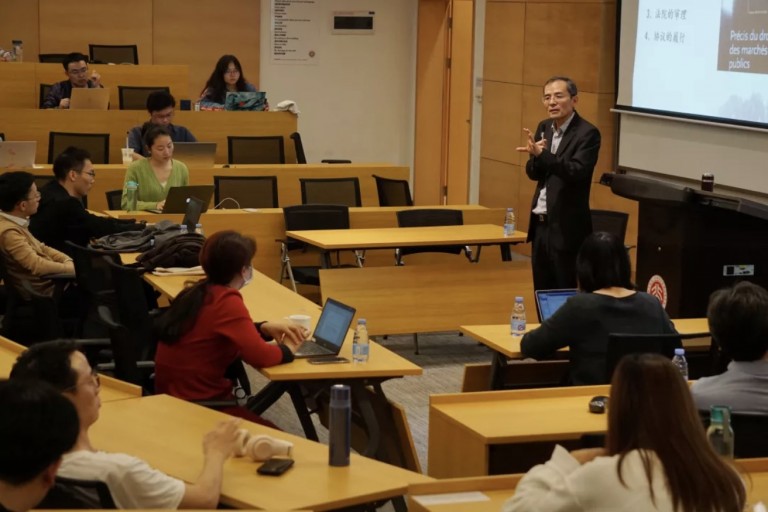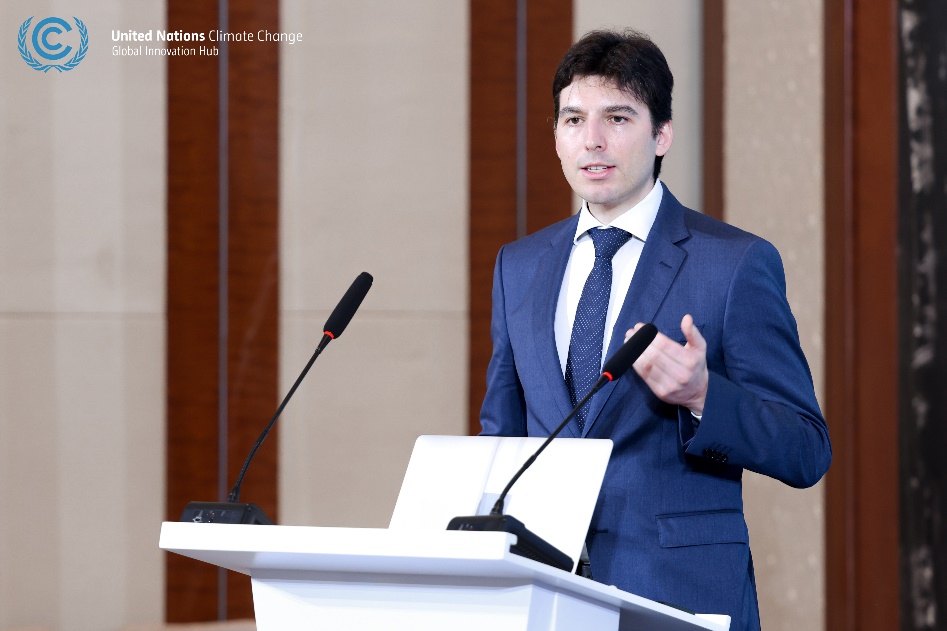Copyright © 2024 Peking University School of Transnational Law.

2020-01-13 Views: 159
On January 11, 2020, a public lecture on “China’s administrative agreement system” was successfully held at STL. This lecture invited Professor Yu An as speaker and was chaired by STL Professor Jin Zining. In Addition, STL Professor Huang Hui and Assistant Professor Mao Shaowei participated in the lecture as panelists.

Yu An, Professor at the Public Administration School in Tsinghua University, is the chief expert of the PPP (Public Private Partnership) Research Center of Tsinghua University. He has published more than 50 papers in journals and books and over 100 articles in central newspapers such as People’s Daily. At the same time, Professor Yu An has many years of government procurement experience and has repeatedly been invited to participate in drafting important laws and regulations.
At the beginning of the lecture, Professor Yu An discussed the judicial“interpretation of the administrative agreement No. 17 [2019], which was announced on December 10th, 2019. Professor Yu An argued that this agreement, as part of administrative law, attracted more attention than expected. Then he introduced the administrative agreement system in China from four aspects, namely, the process of the administrative agreement system, the significance of the administrative agreement entity, procedure and the characteristics, and lastly the vision for the future. He also argued that in order to have better understanding of the reality of Chinese law, STL students should all understand the administrative law first.
Professor Yu An pointed out that, different from French, British and American administrative agreements, the concept of administrative agreement in China is more akin to German and Japanese administrative agreements. In addition, there are still many challenges that arise in practice. For example, the arbitration law made a distinction between the “public” and the “private” in terms of standard expression. However, in practice, that distinction may be hard to establish since a large number of contracts involve the government at the very beginning. At the same time, due to the “reform and opening up policy”, the practice has become more complex considering that foreign parties are often involved. Professor Yu An then introduced the PPP model in China arguing that simultaneously overusing the PFI (Private Finance Initiative) model may lead to increasing risks. In the aspect of litigation procedure, he further explained the characteristics of the “double-track” in China.
At the end of the lecture, professor Yu An and the panelists shared their thoughts on the administrative agreement system and evaluated the lecture. During the question and answer session, professor Yu An helpfully responded to all questions eagerly raised by the students.

October 14, 2024
October 14, 2024
October 14, 2024
October 14, 2024
October 14, 2024